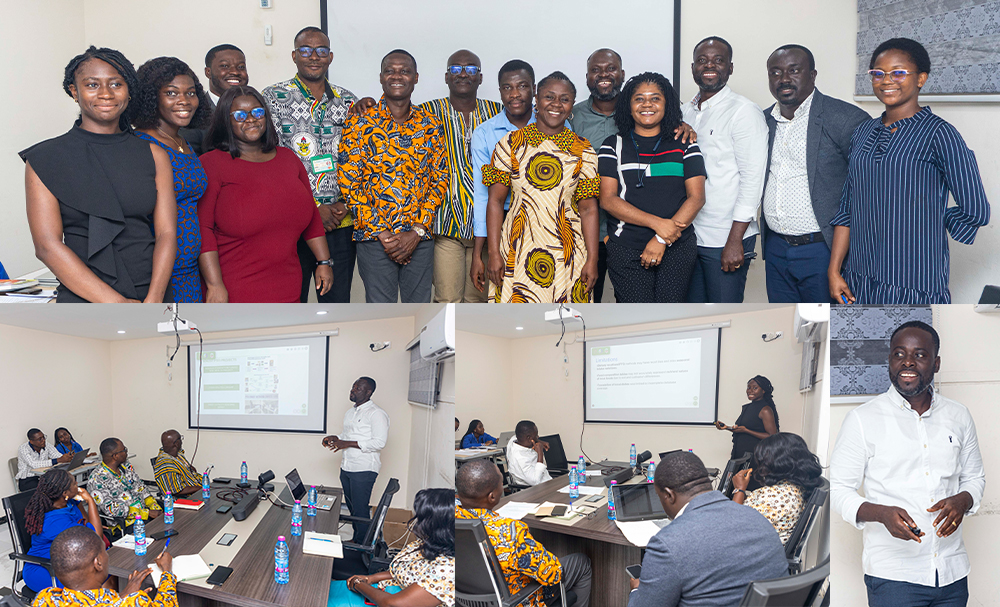Food remains one of the most fundamental needs of human life, supplying nutrients that support growth, repair the body, and regulate vital biological processes.
The World Health Organisation (WHO) emphasises that a healthy diet is essential for good health and nutrition, noting that it protects people against chronic noncommunicable diseases such as heart disease, diabetes, and cancer.
WHO also stresses the importance of eating a variety of foods and reducing the intake of salt, sugars and saturated and industrially produced trans fats as key components of healthy living.
Against this backdrop, the global Periodic Table of Food Initiative (PTFI) imagines a world where everyone has enough food that is safe, nutritious and culturally appropriate; where food systems nourish local ecosystems; and where communities use food as a powerful resource to address diet-related diseases and strengthen both human and planetary well-being.
The initiative recognises that food lies at the centre of pressing global challenges, including climate change, biodiversity loss, and widespread malnutrition. Its work seeks to provide accessible tools, data and training that enable scientists, practitioners, policymakers, and consumers to understand the true composition and quality of the foods that sustain populations around the world.
Through its efforts, the PTFI is advancing the use of food composition data as a critical resource for improving planetary health, whether by examining the effects of climate change on food systems, supporting the scaling of regenerative agricultural practices, or generating evidence to inform diets that can reduce chronic disease.
The Kwame Nkrumah University of Science and Technology (KNUST), Kumasi stands at the forefront of this global effort as one of only nine institutions worldwide selected to host a PTFI Centre of Excellence.
Led by Professor Reginald Annan, the KNUST PTFI Centre of Excellence is one of just two Centres of Excellence in Africa, the other being hosted at the Ethiopian Public Health Institute. At KNUST, the initiative’s work is grounded in a simple but significant fact: although food is central to everyday life, the molecular composition of most foods, especially in Africa, remains largely unknown.
As Professor Annan explains, most Ghanaians do not know what exactly constitutes the foods they eat because the country lacks a national food composition database. Globally, only a small portion of the molecular makeup of foods has been mapped, making the establishment of laboratory hubs that can analyse food composition a critical scientific undertaking.
Through its PTFI Centre of Excellence, KNUST has become a regional hub for analysing foods from across West and Central Africa and for contributing evidence-based data that can support nutrition, agriculture, health and environmental research.
A major component of the initiative at KNUST is the FOOD EDU fellowship programme, which the capacity building arm of the Periodic Table of Food Initiative.
With support from the initiative’s funders, twenty fellows across participating centres have been equipped to conduct specialised research, including seven Ghanaian fellows currently pursuing Master of Philosophy degrees at KNUST.
These fellows have backgrounds spanning sociology, biochemistry, environmental science and food science. Their research explores the various factors that shape food quality, including socio-cultural influences, genetic variations, farming practices, and post-harvest handling.
Mr. Amos Anim, a beneficiary of the fellowship, whose work involves exploring how agricultural practices influence the nutritional composition of indigenous foods, reported that the “fellowship has been nothing short of transformative. It has provided me with invaluable capacity-building opportunities, and a wealth of experiences that I will always treasure These experiences have not only expanded my knowledge but also broadened my vision of what is possible when science, collaboration, and passion come together”. Amos added that the “journey has been more than an academic pursuit; it has been truly life-changing. I am profoundly grateful to the CoE team at KNUST, the Food EDU programme managers, AHA staff, the PTFI directors, Funders, and every single individual whose dedication and support continue to make this vision a reality.”
Through their work, they are helping to generate knowledge that will form the foundation of future food-quality research in Ghana and Sub-Saharan Africa.
One of the most transformative achievements of the KNUST PTFI Centre is the establishment of Ghana’s first metabolomics laboratory, funded by the Bill & Melinda Gates Foundation. This facility also the first of its kind in West Africa positions KNUST as a leader in advanced food composition research.
The metabolomics laboratory houses sophisticated equipment and is supported by experienced investigators, giving researchers the tools needed to conduct high-level molecular analyses of foods.
It also opens new avenues for collaboration with national bodies such as the Food and Drugs Authority and international partners committed to improving food safety and nutritional standards.
By generating multi-omics food composition data, the Centre of Excellence is paving the way for the development of Ghana’s first comprehensive food composition database and for large-scale training initiatives that will increase national research capacity.
Their work seeks to deepen understanding of how the foods people eat affect their well-being, while also strengthening the evidence base for public health policies that aim to reduce malnutrition and promote healthier diets across the region.
KNUST’s involvement in the Periodic Table of Food Initiative represents a significant investment in scientific capacity, regional collaboration and long-term solutions to food and nutrition challenges.
Through advanced research infrastructure, rigorous scientific training and a growing network of young researchers, the University is positioning itself as a continental leader in food composition science.
As the Centre of Excellence continues to contribute data, expertise and innovation to the global food system, its work is helping to build a future in which communities have a deeper understanding of their foods and can leverage that knowledge to promote both human health and planetary sustainability.


















